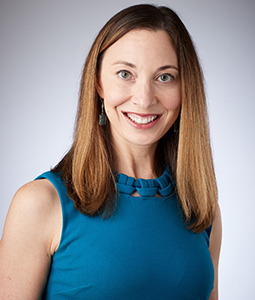
A DePaul law professor since 2013
, Wendy Netter Epstein also serves as faculty director of the Mary and Michael Jaharis Health Law Institute. Recently, she partnered with the American Health Law Association (AHLA) and Dbase media to produce a series of public service announcement videos about COVID-19 and its impact on law, which you can watch here.Q. What were you working on before COVID-19 hit?
Before COVID-19, I was working with co-authors on an experiment testing alternatives to the individual mandate (i.e., trying to reduce the number of uninsured). I also finished writing an article on how the law incentivizes medical devices that are ineffective.
Q. What can you tell us about the COVID-19 video series? How did you and the other groups decide to do it?
We were (and are) planning a series with AHLA and others titled “Health Law Disruption: 2030 and Beyond" that will delve into the rapid changes health law is undergoing, as well as explore disruption by new technology and how people and organizations are shaping the future of health law. When COVID-19 hit, those involved in this series made the suggestion to do a miniseries to focus on ways in which health law is addressing COVID-19 challenges. So we can't take credit for the idea, but we were thrilled that we had a lot of content to contribute because our faculty is working very hard on a wide range of crucially important COVID issues.
Q. What are some of the most notable legal ramifications you've seen due to COVID-19?
There are too many to list. Our country is facing serious challenges concerning inequality and racism, which extends quite clearly to COVID-19. There also are serious legal questions concerning federalism and state powers to require shelter-in-place and mandate masks; liability for medical providers; questions concerning payment, reimbursement, and right to treatment; just to name some. Then there is a whole separate list of questions concerning vaccine and drug development and vaccine pipelines that come back to legal issues, as well.
Q. Overall, what would you want people to get from these videos? What is some general advice you can give for getting through the pandemic?
I want these videos to show people how committed we are at DePaul to our role as public academics, particularly in the most trying of times for our country. We want to start a discussion, to contribute analysis, and hopefully to influence law and policy. It seems that so much is uncertain in these times, and that's extremely disconcerting for everyone. But at the same time, as legal professionals, and in particular as health law professionals, we are trained to deal with uncertainty, and we have to use those tools as productively as possible.